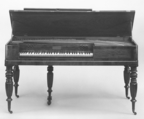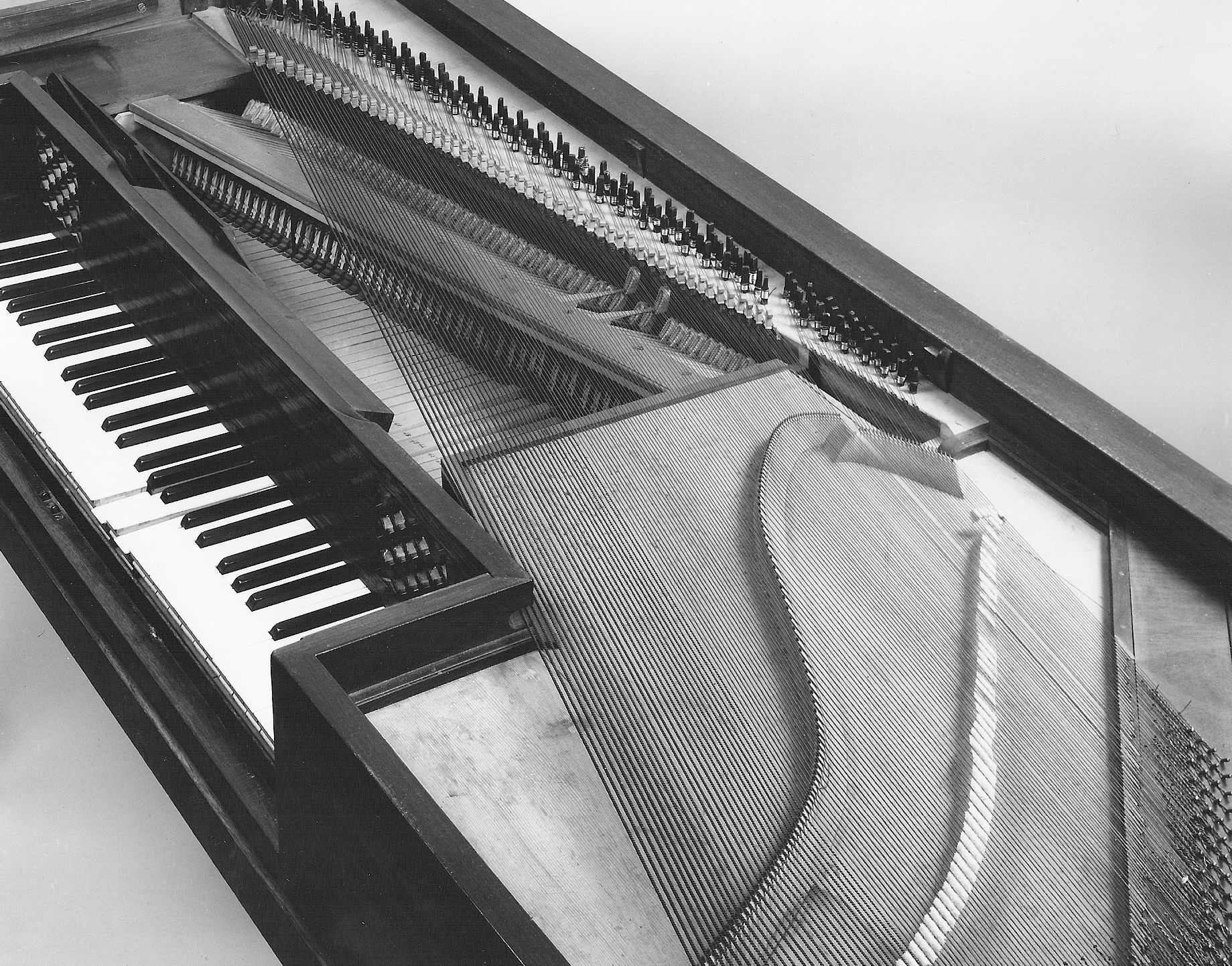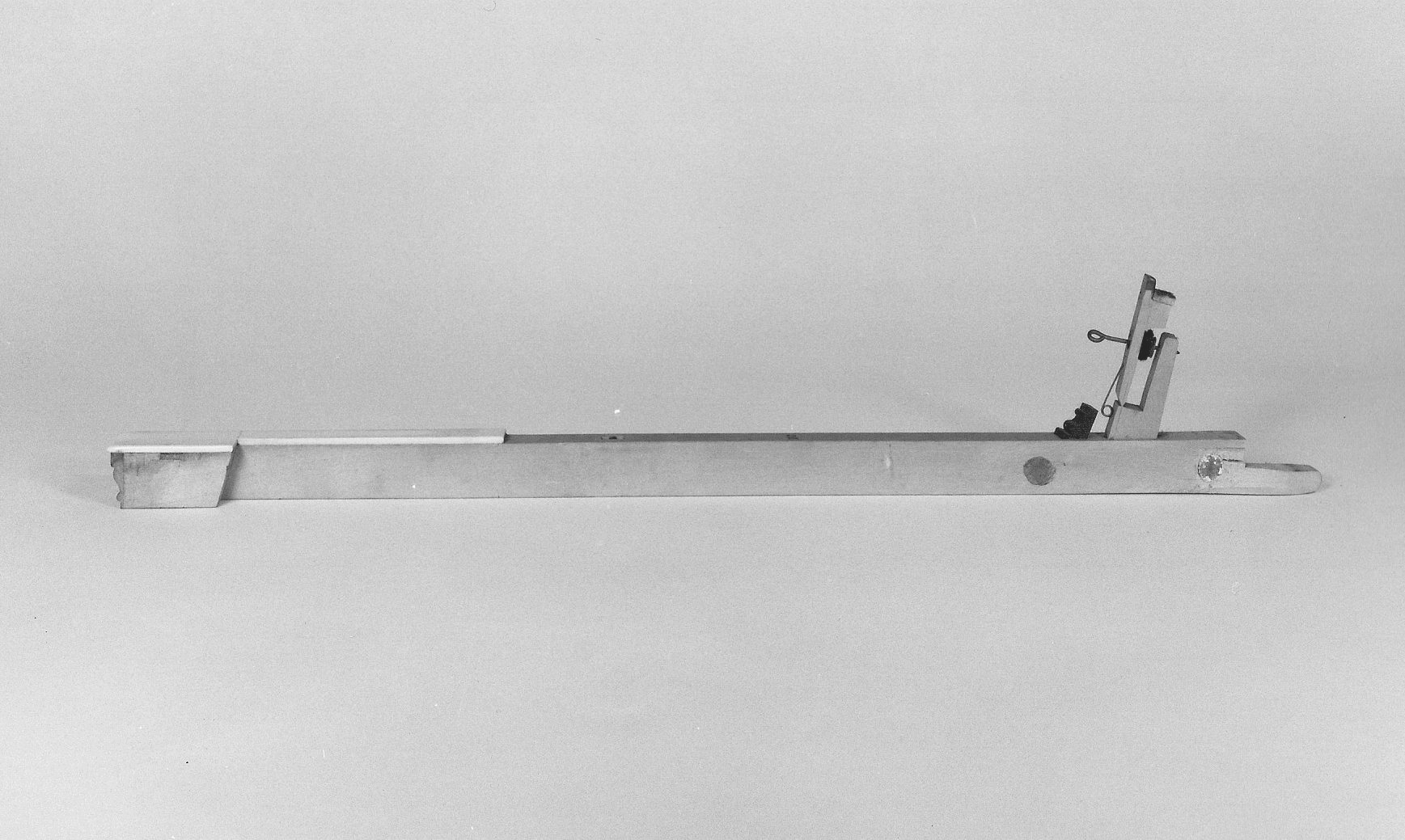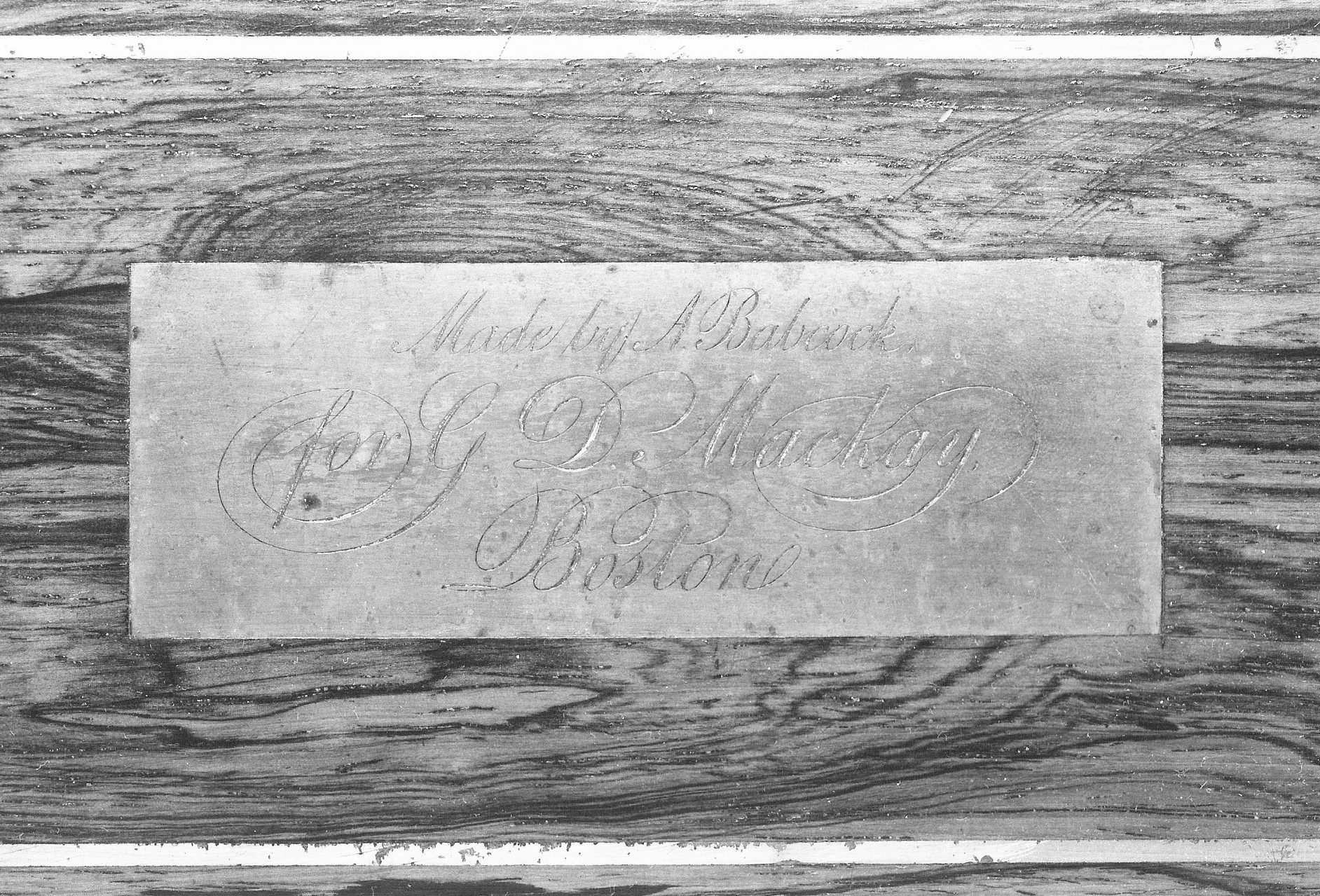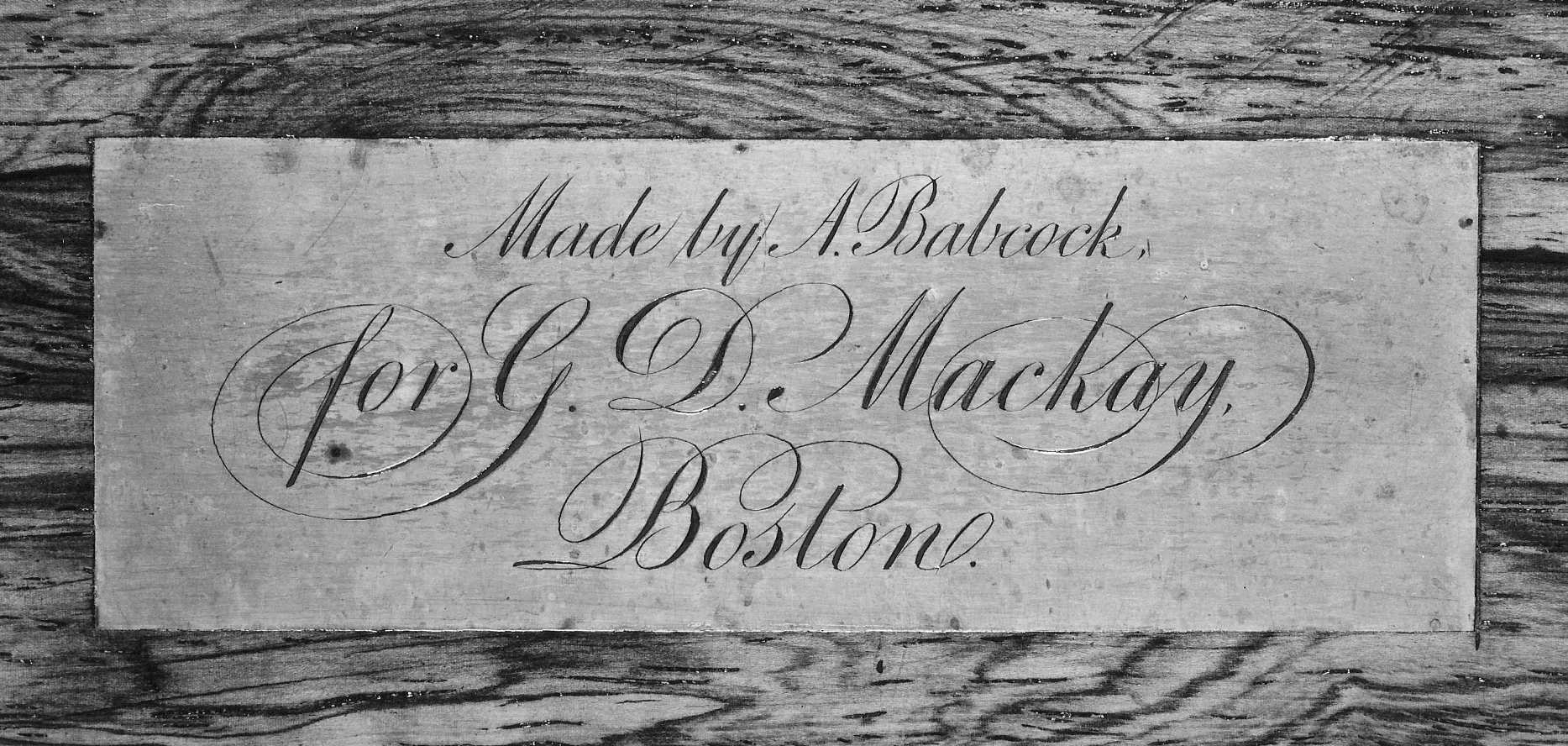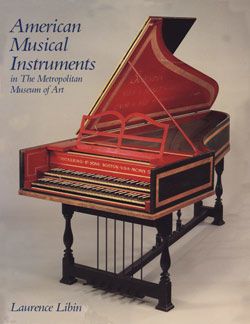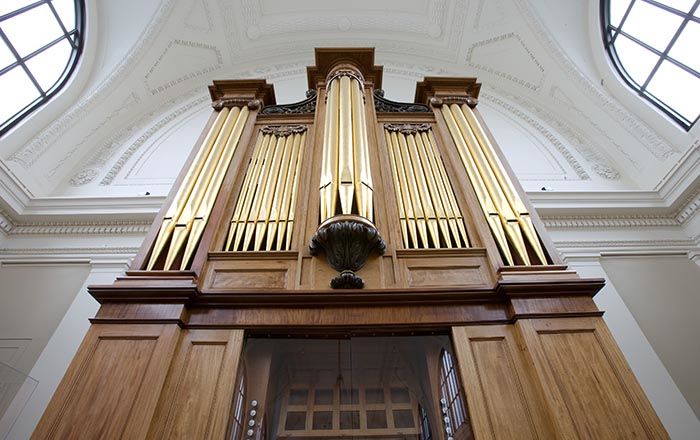Square Piano
Alpheus Babcock American
Not on view
Alpheus Babcock was a Boston piano maker most famous for his invention of a cast iron frame for the square piano, a design he patented in 1825. The cast iron frame would become the standard for pianos of all types and sizes. Alpheus established his first company in 1809 along with his brother Lewis, who died in 1814. Over the next several decades, Babcock had several business partnerships and arrangements, including with the builder Thomas Appleton, who later went on to renown for his pipe organs (including an example from 1830 also at the Museum).
Included in those business partnerships were members of the Mackay family, including George (G. D.) Mackay whose name appears on Babcock pianos beginning in 1822 until his death in 1824.
Technical description: Rectangular case with rounded corners, mahogany striping surrounding the larger mahogany panels, nameboard veneered with rosewood, with fretwork panels and inlaid brass striping, wood dust cover painted green with black and gilded borders, turned and heavily reeded mahogany legs with brass caster, 5th leg supporting damper pedal; compass: FF-c4 (68 keys), ivory naturals with molded fronts, ebony accidentals; 1 damper pedal; oblong pierced and unpierced tuning pins along spine; English double action with intermediate lever and escapement with adjustment screw; crank-type dampers; double strung throughout lowest 14 notes wound with steel ribbon (L. Liibn 8 Dec 76)
Due to rights restrictions, this image cannot be enlarged, viewed at full screen, or downloaded.
This artwork is meant to be viewed from right to left. Scroll left to view more.
